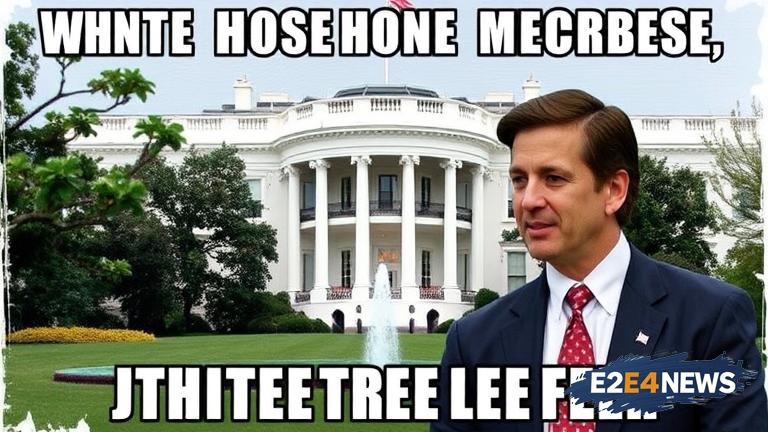In a shocking turn of events, the White House has found itself at the center of a social media maelstrom, courtesy of its latest batch of memes. The online posts, which have been likened to something out of a ‘bad Twitter parody account,’ have sparked widespread outrage and criticism from various quarters. Rep. Jamie Raskin, a Democrat from Maryland, has been particularly vocal in his denunciation of the White House’s social media strategy, labeling it as ‘unbecoming’ and ‘unprofessional.’ Raskin’s scathing critique has been echoed by numerous other lawmakers and pundits, who have expressed their dismay at the administration’s apparent penchant for crass humor and internet memes. The White House, however, remains unapologetic, with officials insisting that the memes are an effective way to connect with younger voters and showcase the administration’s more lighthearted side. Despite the backlash, the White House has continued to double down on its meme-filled social media approach, posting an array of humorous images and videos that have been met with a mix of amusement and outrage. The controversy has also sparked a wider debate about the role of social media in politics, with some arguing that the White House’s approach is a refreshing change of pace, while others see it as a misguided attempt to pander to the internet’s lowest common denominator. As the situation continues to unfold, it remains to be seen whether the White House will ultimately reap the benefits of its meme-filled social media strategy, or if it will succumb to the mounting criticism and revert to a more traditional approach. The incident has also raised questions about the boundaries of online discourse and the extent to which politicians should engage with internet culture. Furthermore, the White House’s decision to wade into the world of memes has been seen as a calculated move to distract from more pressing issues, such as the economy and foreign policy. Others have argued that the memes are a clever way to humanize the administration and make it more relatable to the general public. The controversy has also sparked a flurry of memes and jokes from the online community, with many users taking to social media to mock the White House’s attempts at humor. In addition, the incident has highlighted the challenges of navigating the complex and often treacherous world of online politics, where a single misstep can quickly spiral into a full-blown crisis. The White House’s social media team has faced intense scrutiny in recent days, with many questioning their judgment and ability to craft an effective online strategy. As the dust settles, one thing is clear: the White House’s meme-filled social media approach has sparked a national conversation about the role of humor and internet culture in politics. The incident has also underscored the importance of social media literacy and the need for politicians to be aware of the potential pitfalls and benefits of engaging with online communities. Ultimately, the success or failure of the White House’s social media strategy will depend on its ability to balance humor and seriousness, while also navigating the ever-changing landscape of online discourse.
